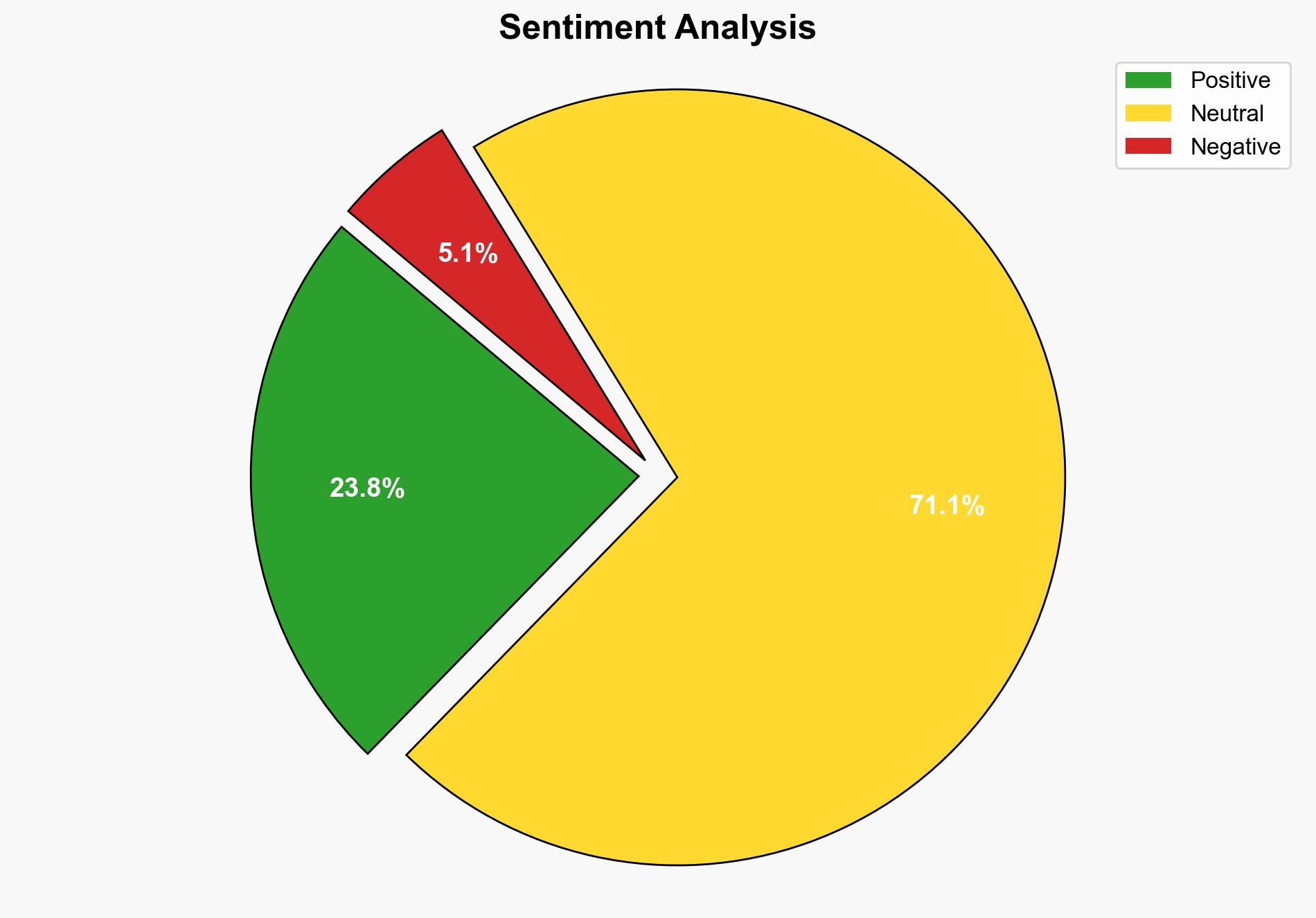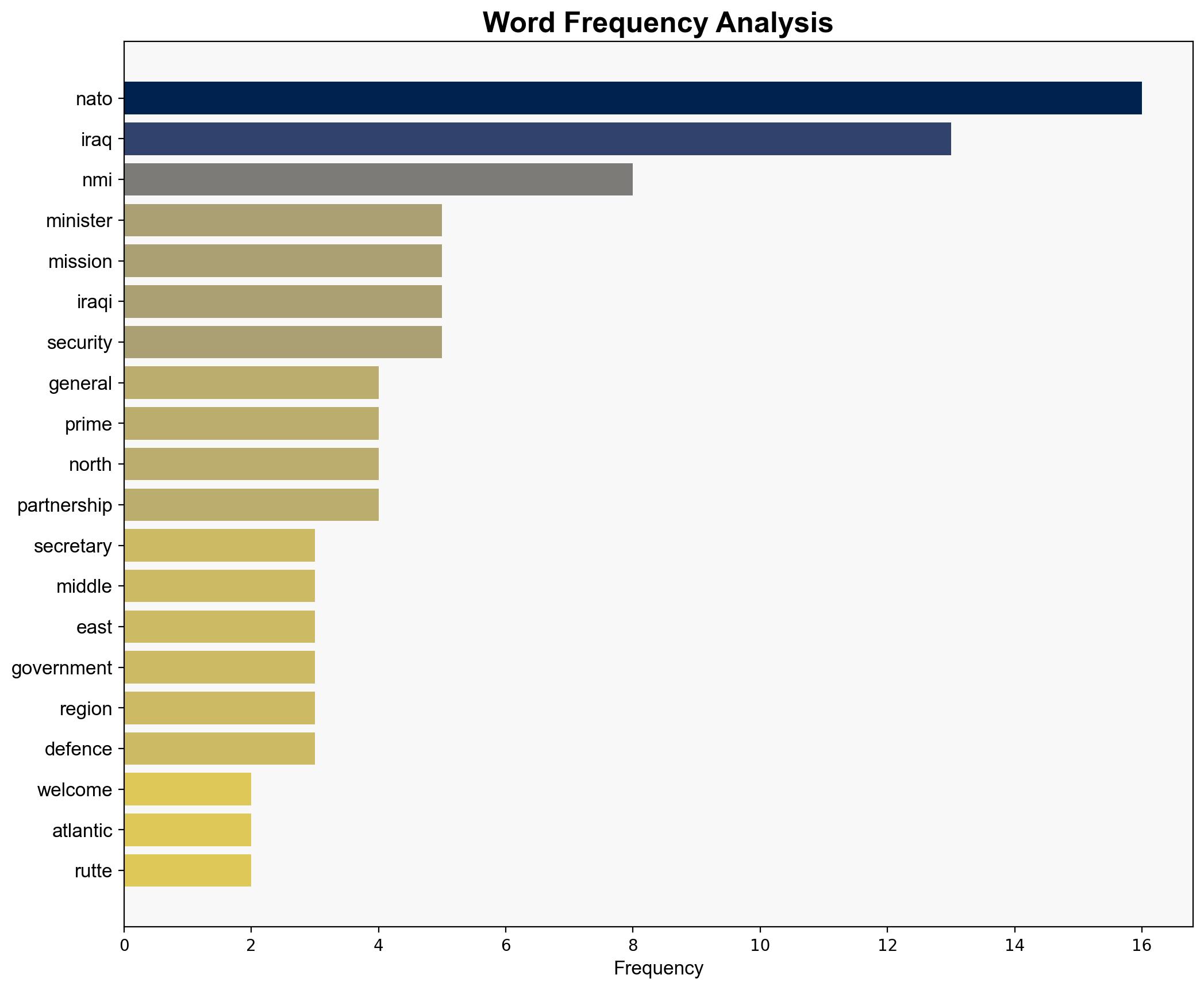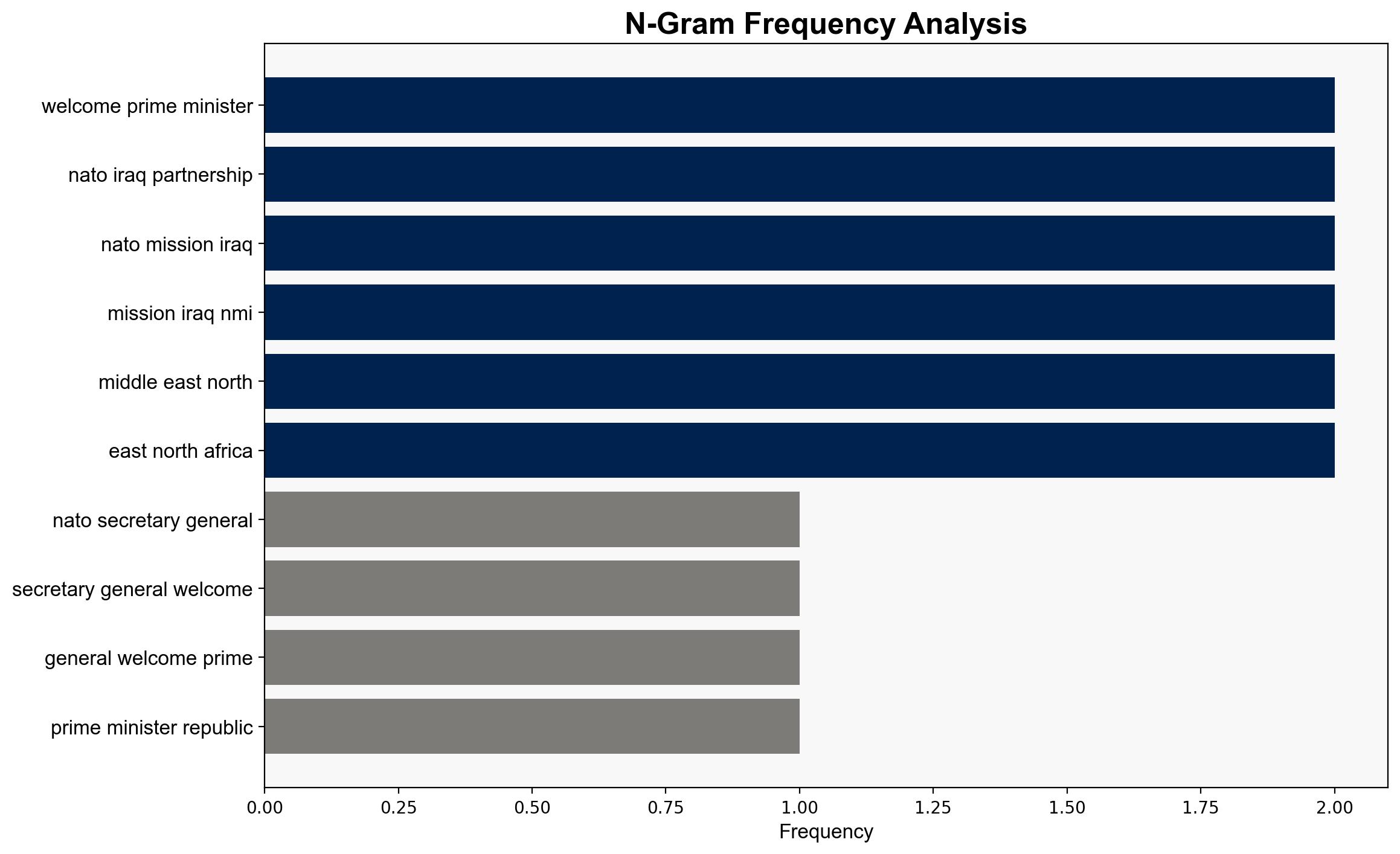NATO Secretary General welcomes Prime Minister of the Republic of Iraq – Globalsecurity.org
Published on: 2025-09-09
Intelligence Report: NATO Secretary General welcomes Prime Minister of the Republic of Iraq – Globalsecurity.org
1. BLUF (Bottom Line Up Front)
The strategic engagement between NATO and Iraq, highlighted by the recent meeting, suggests an increased commitment to stabilizing Iraq and enhancing regional security. The most supported hypothesis is that NATO aims to solidify its influence in the Middle East through non-combat advisory roles, thereby preventing the resurgence of ISIS and countering regional instability. Confidence level: Moderate. Recommended action: NATO should continue to strengthen its advisory role while ensuring respect for Iraq’s sovereignty to maintain local support.
2. Competing Hypotheses
1. **Hypothesis A**: NATO’s engagement with Iraq is primarily focused on preventing the resurgence of ISIS and enhancing regional stability through non-combat advisory roles.
2. **Hypothesis B**: NATO’s increased presence in Iraq is a strategic maneuver to counterbalance Iranian influence in the region and assert Western interests.
Using ACH 2.0, Hypothesis A is better supported due to the explicit mention of NATO’s non-combat advisory mission and its focus on building sustainable security institutions in Iraq. Hypothesis B lacks direct evidence but remains plausible given regional dynamics.
3. Key Assumptions and Red Flags
– **Assumptions**: It is assumed that Iraq’s government fully supports NATO’s presence and objectives. Another assumption is that NATO’s advisory role will not escalate into combat operations.
– **Red Flags**: Potential bias in underestimating local opposition to foreign military presence. Lack of detailed information on Iraq’s internal political dynamics and public opinion regarding NATO’s involvement.
4. Implications and Strategic Risks
– **Geopolitical**: Increased NATO presence may strain Iraq’s relations with neighboring Iran, potentially leading to geopolitical tensions.
– **Security**: Failure to effectively stabilize Iraq could lead to a resurgence of ISIS, threatening regional and global security.
– **Economic**: Prolonged instability in Iraq could disrupt oil markets, affecting global economic stability.
– **Cyber**: Increased NATO involvement may provoke cyber retaliation from regional adversaries.
5. Recommendations and Outlook
- **Mitigate Risks**: Engage with local Iraqi leaders to ensure NATO’s objectives align with national interests, reducing potential backlash.
- **Exploit Opportunities**: Leverage NATO’s advisory role to foster regional partnerships and enhance intelligence sharing.
- **Scenario Projections**:
– **Best Case**: Successful stabilization of Iraq, leading to a decrease in terrorist activities and improved regional security.
– **Worst Case**: Escalation of regional tensions, with increased Iranian influence and a resurgence of ISIS.
– **Most Likely**: Continued NATO advisory presence with gradual improvements in Iraq’s security infrastructure.
6. Key Individuals and Entities
– Mark Rutte
– Mohammed Shia al-Sudani
– Fuad Hussein
– Christophe Hintzy
7. Thematic Tags
national security threats, cybersecurity, counter-terrorism, regional focus





